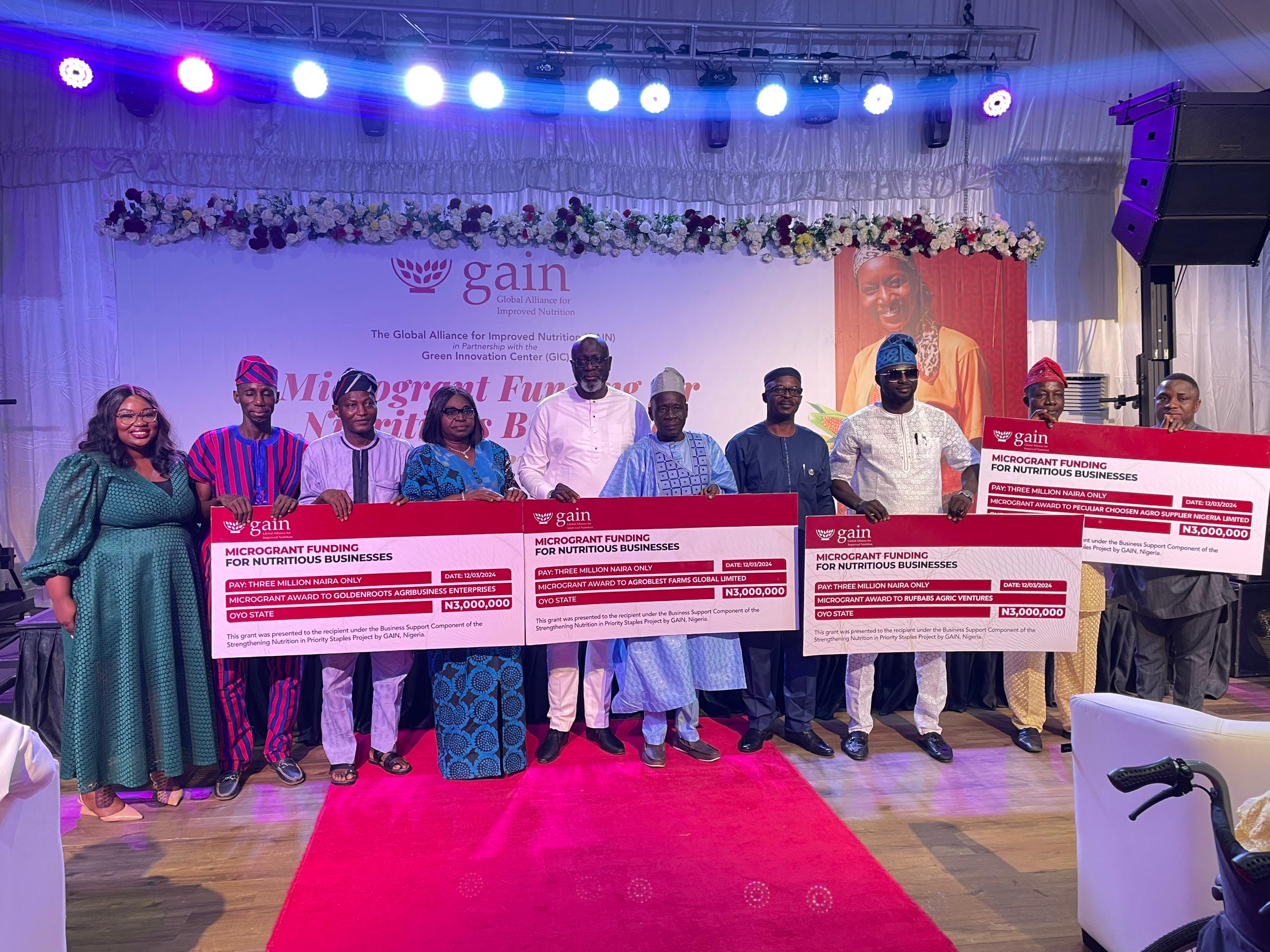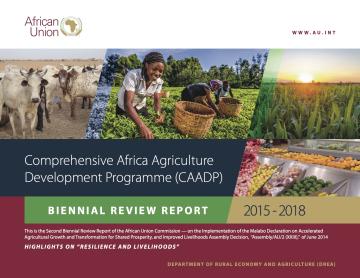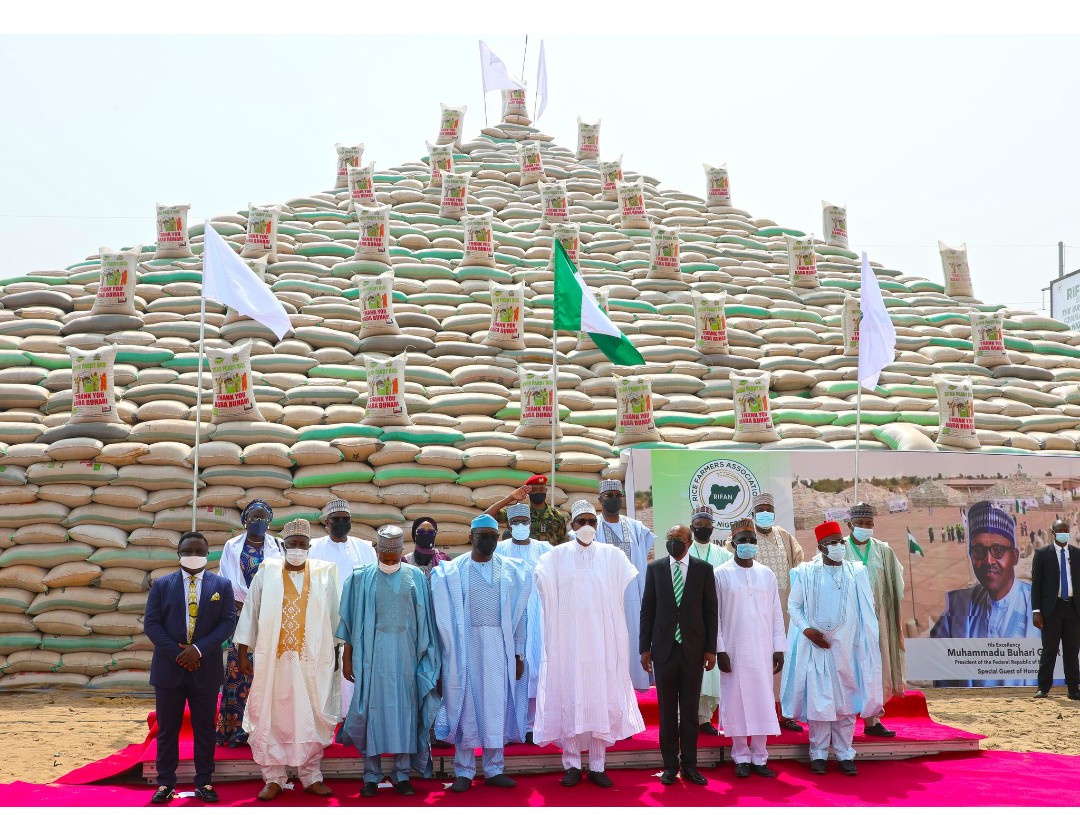***Small, Medium farm business enterprises to improve nutrition, food security
States and Local governmets have been charged to give support to the smallholder farmers, other agric related small and medium enterprises to improve nutrition and food security.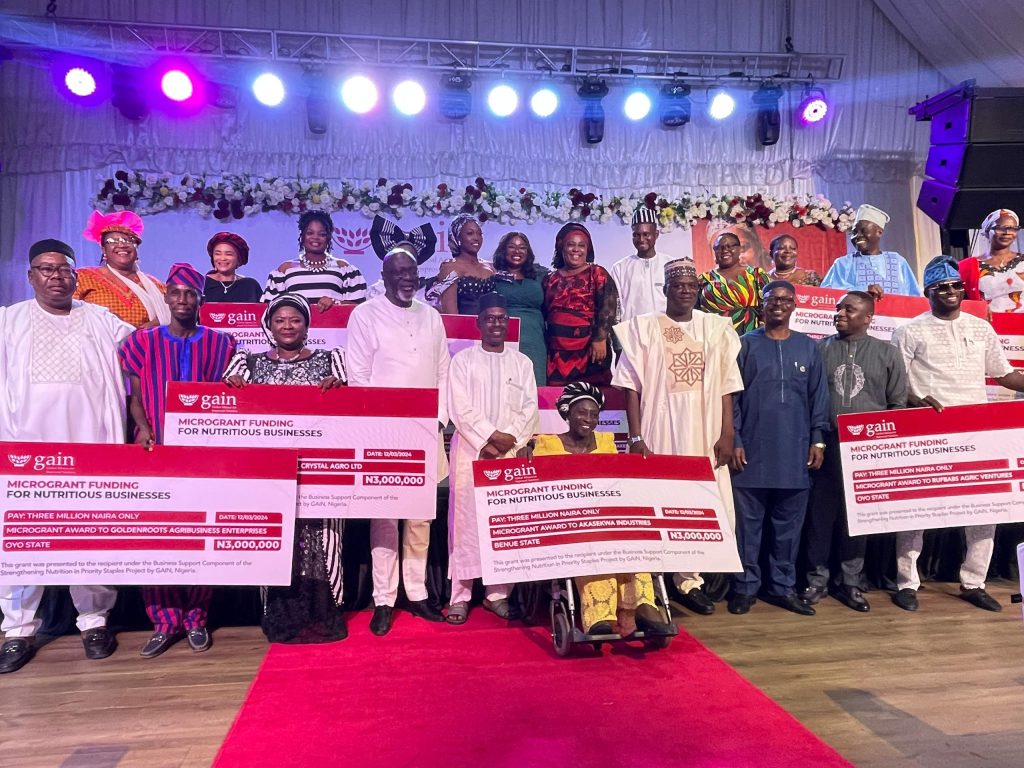
The National President of All Farmers Association of Nigeria (AFAN), Architect Kabiru Ibrahim and the country Director of Global Alliance for Improved Nutrition (GAIN), Micheal Ojo, gave the charge recently at the 2023 Microgrant funding for nutritious Business Award Ceremony for 16 businesses in Abuja.
The grants were awarded at N3m each to 16 small businesses by Global Alliance for improved Nutrition (GAIN) in Benue, Nasarawa, Jaduna and Oyo States.
Ojo in his keynote address, said the gathering is to celebrate Small and Medium enterprises.
He said, the more the smallholders farmer in the country are empowered and encouraged with support that provude them access to expanding their production and connecting to markets, what they produce would not come to waste that is the big part of the solution to insecurity.
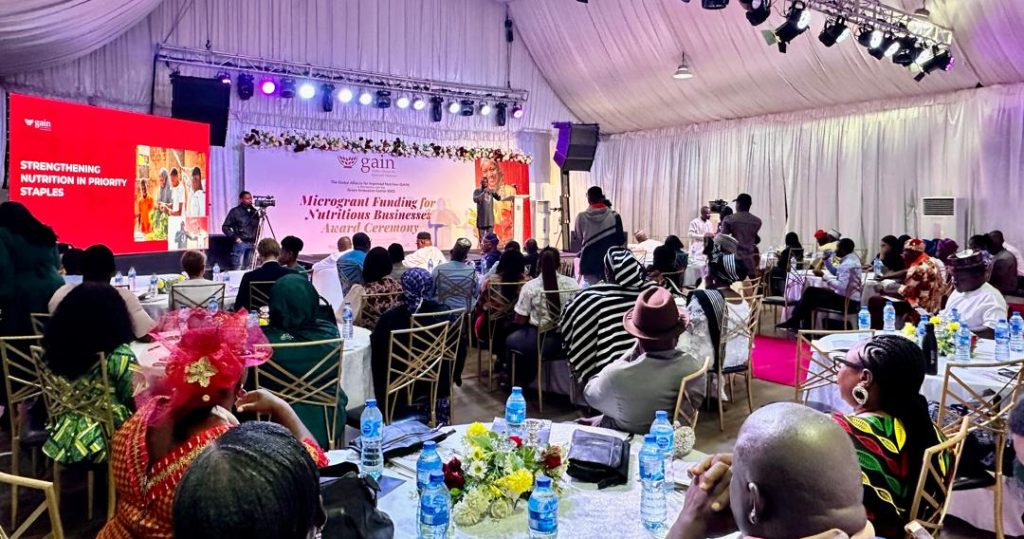
“We have been supporting many of them on this project that we call Strengthening Nutrition in Priority Staples over the past couple of years and the project is aiming to help those who are working in specific value chain, VitaminA maize, VitaminA cassava, Orange sweet potato to help them to produce more and to process what they are producing so that they can have these food Items on the market.
“The point of this is to help to improve the nutritional quality of our food and diversify at times and we all as Nigerians consume a lot of Cassava, a lot of Maize, we consume a lot of potato but we now have opportunity to actually move those foods away from analog varieties to more nutritious varieties.
“All of these new varieties have very high levels of Vitamin A. Vitamin A deficiency is prevalent in our population and it is a very important micronutrient for health and wellbeing for children, for mothers but all of us.
“So this is a very important development. What we are doing with the microgrant that we are providing as support to these businesses is recognizing that many of them face the challenge of finding access to finance to grow the small and medium enterprises.
“We all know how difficult it is to access funding in Nigeria. This helps to take their businesses from whatever level they are to the next level and it can be used for improving their processing, it can be used for packaging or it can be used for assuring the quality of their products.
“It can be used for marketing of their products. It cand be used for so many things and we will work with the businesses to identify the best ways for them to use this micro grant fund.
“For each of the 16 businesses that we are awarding today, we are giving each one of them N3m. For a small business that is a substantial investment to support them to be able to invest in their businesses and to scale up.what they are doing.
“So that is why we are here and I am really pleased that we have been able to bring everybody together and I am thankful to our partners in the four States where we are working, in Kaduna, state, in Nassarawa State, Benue State and Oyo State. These guys are here, the partners are here. I am really pleased
“Currently we have funding to work in the four States but there is still a lot of work to do, we have just done over half way through the project. We are currently working and identifying more businesses in those four States.
“Yes we are looking for additional funding to work across other States but that will depend on new funding. It doesn’t even have to be through GAIN, we are showing the governments we are working with businesses that are in the State you know pouring in State resources doing what we have done to scale it up.
“We bring very small investment but the real investments is going to come from State and also from the private sector. 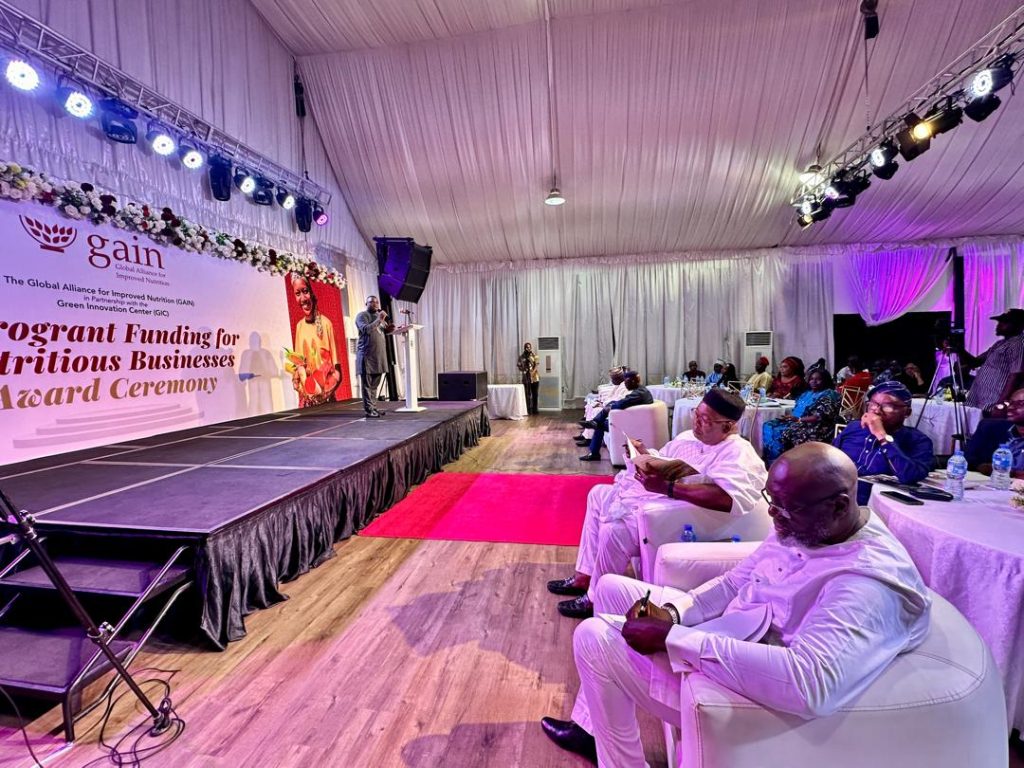
“So we are hoping that people will look at what we have done, they copy what we have done, they replicate it and expand it so that we can have increased and improved access to nutrition for the country.
“We have worked with at least 4000 food processors across the States. We are working with about 8000 farming households so that is the scale we were able to reach with the project.
“We are not able to solve insecurity unfortunately. Insecurity also stems from the lack of access to livelihood.
Architect Ibrahim, said, the effort to do Nutrition security is complementary to food security as a matter of fact.
“We have been championing the call for farmers to add value to what they produce so that they will get more. The work of GAIN is very apt, it is making our farmers more prosperous and making the food security question more seamlessly achieved.
“Food security actually means eating what you want at the time that you want and it is affordable to you and it is nutritiously balanced.
“Any effort to fortify the conventional crops to make them more valuable nutritiously is a welcome development and Nigeria will only be food secure if it is nutriciously secured because the children will not be stunted.
“I think it is a very good effort and I am glad that I came to witness here. This is what every farmer should strive to do, add value to what the produce because if you sell whatever you produced in its primary form you get nothing.
“It is value addition that took those countries we call the first world to where they sre today. We have the land, we have the manpower, we have everything here but since we don’t add value to whatever we produce, we are always at the losing end.
“For me, my experience spans back to two decades in this business because I don’t believe in donor funding because definitely you to part with that which is actually yours that supposed to be secret.
“You have to ask the motivation for the donation first. To that effect I am saying that we should look inward.
“The State and local Government that is where agriculture take place, they should be more into this than leaving it to the National.
“We should go back to the States and local government to produce and then we learn to add value from there. “Agric business is the thing that would move to food security in the sense that, when you produce something and you get money and the villagers see that you are prosperous they will take up what you so and that way Nigeria will become food sufficient and then we attain food security.
“This is what happens in the first world, agriculture business is the motivation that made 55,000 people in the Neitherlands to have income second only to the United States of America.
“The income in agriculture in the Netherlands is what make the country work and in the country everybody is busy because they are adding value to what they produce and they are doing agribusiness and they are going into everywhere in the world to sell what they have
“The governor’s have started buying into it, a number of them have visited the Minister of Agric lately and on Monday I was in Minna with the Presid2nt where they launched 1000 tractors, 3000 water pumps.
“That governor is doing well, I call him the most farmer friendly governor of this country. All other governors should model after him. Four governors were at the ocasion, two from the central.”

